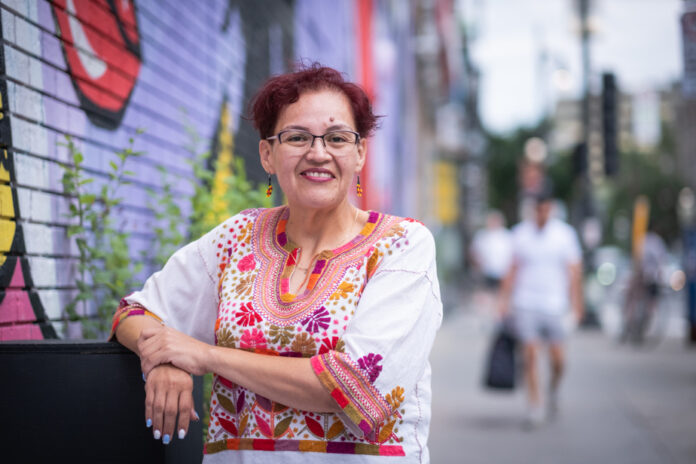Until last summer, Berenice Castro only knew Nuits d’Afrique as a spectator. She has been going there for years with her Guinean husband, an acquaintance of Lamine Touré, founder of the festival. His vision of the event changed completely when a neighbor asked him to help out with the team that plans and distributes meals and refreshments to artists, technicians and volunteers during the 12 days that lasts. the event.
“Seeing the festival in front of the stage or behind it is not the same thing,” says the woman originally from Mexico, who is responsible for what in the business they call catering, meaning the meals, snacks, drinks and little touches presented to the artists behind the scenes. His days are long and intense.
Berenice Castro began planning the festival’s dishes last February by compiling the requests received from the management companies of the hundreds of guest musicians and artists. She starts early since July 11: active in the morning to buy fresh produce, she does not go to bed until after midnight every day.
Yes, some artists have “a bit special” requests, she confirms. “Last year, there was one who wanted everything in the dressing room to be white: from lemongrass-flavored white napkins to strawberries dipped in white chocolate,” says Berenice Castro. Details that we can find a little crazy, but we end up understanding why. »
Artists, she summarizes, need a safe environment. She remembers finding one of them arrogant at first glance last year. “Watching him all day, I realized it wasn’t arrogance, it was nervousness,” she said.
The requests are far from all extravagant. They reflect the preferences or constraints (diseases, allergies, religion) of each. Africans generally don’t eat pork because of their faith – many of them are Muslims – and like their food to be organic. Those who come from France, they ask for meats and cheeses. Latin Americans are rather curious: they want to taste African or typically Quebec dishes (smoked meat, poutine, etc.).
After noticing that a lot of artists were asking for hot water, honey, lemon and fresh ginger, Berenice Castro decided to include these items in the basic kit given to everyone this summer. “I’m not a singer, but I understood that it makes them feel good,” she explains simply.
Its role, although discreet, is essential. “We sometimes forget that these artists are professionals. We deserve to have the best of them and they know that’s what the public expects, she observes. We participate in ensuring that they are in the best possible mood and that the show goes well. What I try to share with volunteers is that we have an impact, that we can have a positive impact on the quality of performance. »





